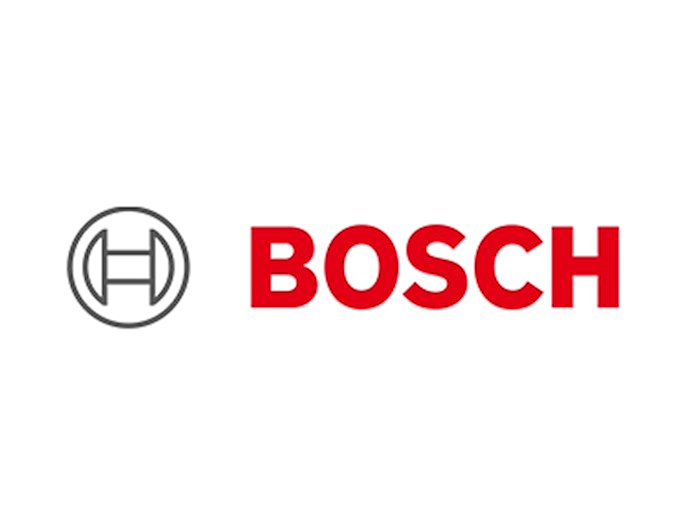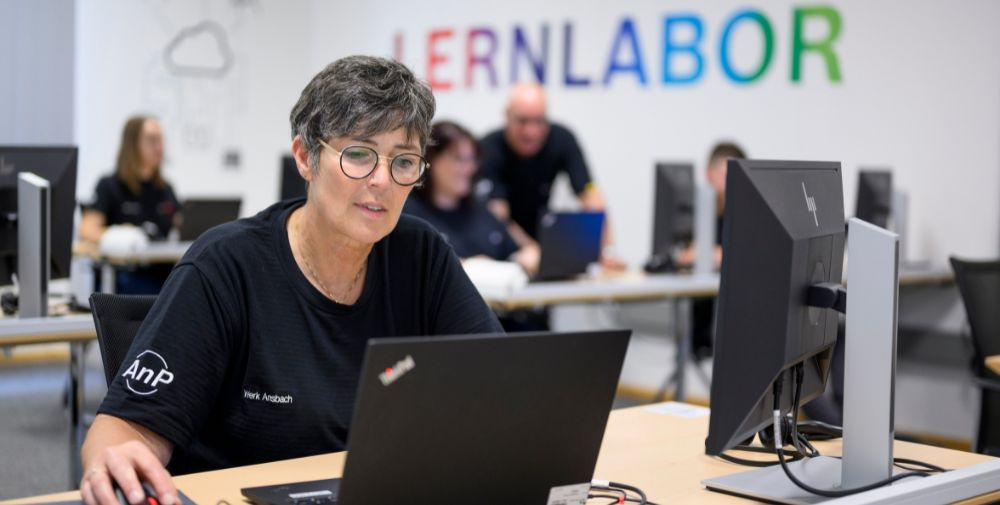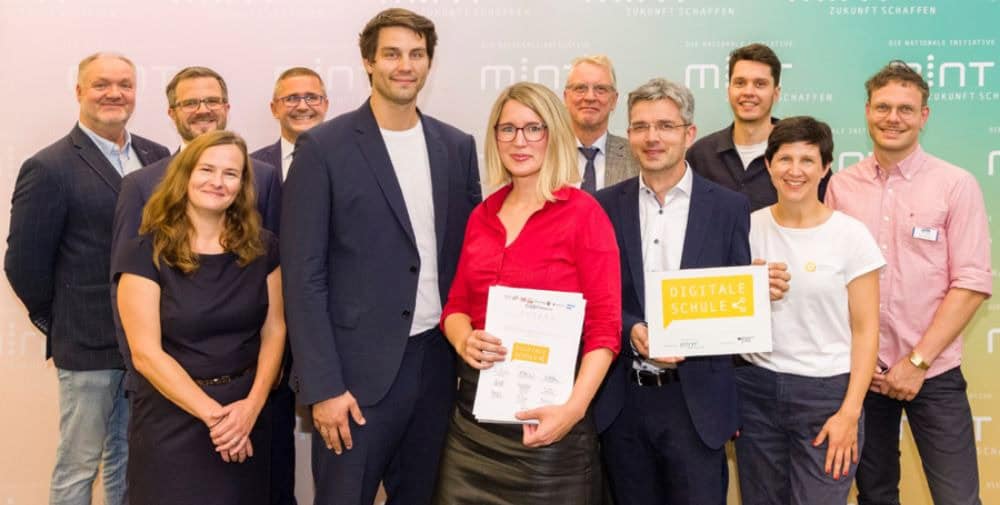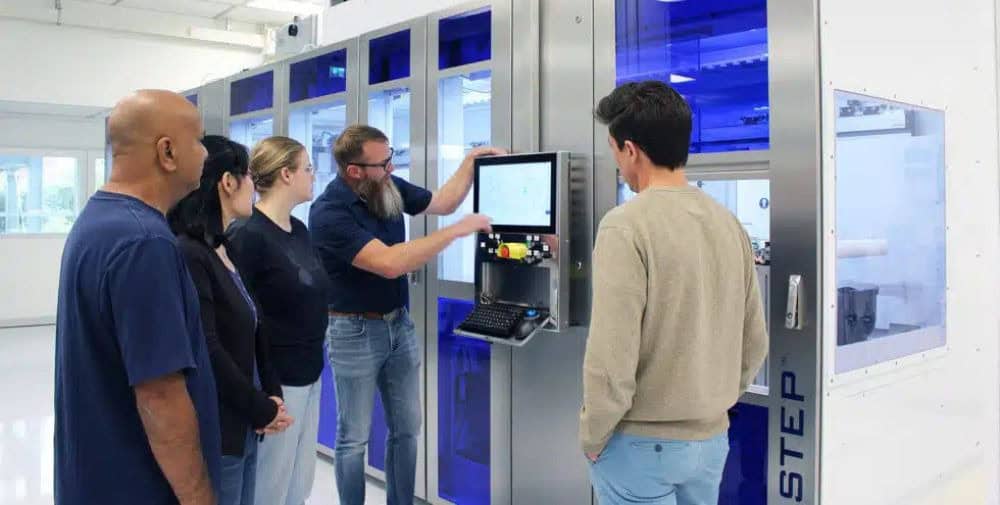
“The key figures for the first half of the year indicate that we will train around 50 percent more Bosch participants in 2023 than in the previous year,” says Grosch. The commitment does not end at the company’s own plant gates. With academies, training centers, and training courses, Bosch also offers other companies, customers, and interested parties the opportunity to acquire knowledge. Take Industry 4.0, for example: more than 100 Bosch training programs on digitization and networking in manufacturing are available externally through offerings from Bosch Connected Industry, Bosch Rexroth, and training institutes.
Education: Bosch fosters individual talent for team success
According to the European Commission, three-quarters of companies in the EU report difficulties in finding qualified workers, and only 37 percent of adults continue their education on a regular basis. (Source: European Commission, 2022). “Bosch promotes lifelong learning. This is the key to lasting professional and entrepreneurial success,” says Grosch. The value creation of the national economy also depends on it. “If we want to maintain prosperity in Germany and remain successful as an exporting and industrial nation, we need to invest even more in qualifications and intelligent technology and promote them,” says Grosch. Bosch offers all associates the opportunity to further their education. In 2022, Bosch associates attended one to two training courses on average; in addition, they completed two to three web-based training courses. The approximately 6,000 training seminars for future technologies are particularly extensive, lasting two days on average. In this context, digitization often determines not only the topic and content of training courses, but often also the form: in 2022, two-thirds of all ‘learning hours’ were completed digitally by Bosch associates. “Digitization is becoming a training booster for companies and their associates; it enables learning regardless of time and place and makes new technologies such as artificial intelligence a tangible experience,” says Bosch CEO and CDO Dr. Tanja Rückert. Last year, Bosch spent a total of around 300 million euros on training for its associates. “At Bosch, we develop ‘technology for life.’ To do this, we need the right team with talent in all positions who continuously improve and expand their skills,” says the Bosch labor director.
Qualification: Bosch focuses on industrial base
The labor shortage comes at a cost. The Boston Consulting Group puts the lost value-added potential for the German economy at 86 billion euros, and the German Chamber of Industry and Commerce even puts it at just under 100 billion euros – annually (source: DIHK, 2023). In an international comparison of the nations with the strongest economies, the losses suffered by the German economy are the second highest after the USA. “In the competition for the best talent, companies must put everything on the line. A future-oriented corporate approach also means identifying training and development opportunities and offering them to employees. Highly qualified employees are a decisive competitive advantage,” says Grosch. As a manufacturing technology company, Bosch pays close attention to the further training of its associates in the production facilities. This year, for example, the Mobility division launched the “LernWerk” initiative to train 24,000 associates for the digital transformation, initially at German locations. “Manufacturing is where value creation begins in our company. This is where we lay the foundation for entrepreneurial success. Progressive and efficient manufacturing impresses with a high degree of networking and digitization. An important prerequisite for this is the qualification of associates,” says the Bosch digital boss.
Transfer: Bosch provides knowledge and training systems
Bosch supports companies with its training program, which is additionally offered nationally and internationally through partners such as chambers of industry and foreign trade, colleges, and universities in the case of Industrie 4.0: “From France and the Czech Republic to China, India, and Singapore, all the way to Colombia and Peru – companies are qualifying associates in production based on the German model. Bosch is one of the Industry 4.0 pioneers. We take our knowledge to the world. Industry 4.0 training ‘made in Germany’ is becoming the global standard,” says Rückert. In addition to education and training programs, Bosch is developing training systems tailored to the qualification levels required by industrial and educational institutions. Bosch Rexroth is launching a new training system, Automax 600, on which the digitization of production processes can be experienced in practice with the help of internationally standardized programming languages and open interfaces – including the control of robotics, the operation of autonomous transport systems, and cloud applications such as data analysis and machine learning based on artificial intelligence.
Automation: Bosch uses technology to help reduce workload
Training and education and skilled immigration are important elements in countering the labor shortage, but technology also has a key role to play. Bosch Rexroth, for example, has developed an automation solution that no longer requires specific automation knowledge to use. Users of ctrlX Automation can choose from over 30 common programming languages. The company is pursuing a similar approach in hydraulics: with H4U, customers will in future be able to integrate software from Bosch Rexroth into their familiar automation architecture, eliminating the need to build up their own hydraulics expertise. “By opening up systems, making technology interoperable, and shifting hardware applications to software, we reduce complexity and dependencies, for example on specific specialists,” says Rückert. In addition, technology relieves employees, for example in monotonous, strenuous and dangerous tasks. Robotics assists with loading and palletizing, artificial intelligence helps with the visual inspection of workpieces, augmented reality guides through work processes, and driverless transport systems take goods directly to where they are needed. “We can only cope with the effects of demographic change if productivity increases. To do this, we need well-trained skilled workers who can use their labor sensibly and efficiently because technology supports them. The interplay between man and machine and between education and digitization is a key success factor,” Grosch said.
– – – –
Further links
👉 www.bosch.de
Photo: Bosch




